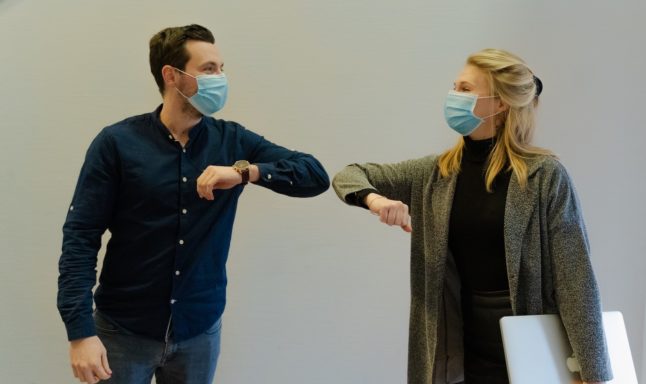The Swiss government presented proposals Friday for broad new restrictions as Covid cases surge, including barring unvaccinated people from restaurants and cultural activities as well as home working requirements.
The government put forward two proposals for new measures aimed at reining in ballooning rates of transmission, and said a final decision would be announced on Tuesday.
2G or restaurant closures: Switzerland announces new Covid measures plan
“I would have liked to say enjoy the holidays,” President Guy Parmelin told a news conference, adding though that “unfortunately, the government must once again propose additional measures to stymie a new wave” of infections.
Currently, a so-called Covid certificate — attesting that the holder has either recovered from Covid, been vaccinated or tested negative — is required to enter restaurants and a wide range of venues.
But both government proposals would largely shut out unvaccinated people, regardless of whether they hold a negative test.
“I am convinced that the vaccine remains our best chance to bring an end to this repeated crisis,” Parmelin said, urging all those yet to receive a shot to get one.
Under both government proposals, only people who have recovered from Covid or been vaccinated would have access to indoor cultural and sporting events. Unlike now, they would be required to wear a mask.
‘2G’: Will Switzerland further tighten the Covid certificate?
In places where mask-wearing is not possible, like restaurants, at nightclubs or in pools, a negative test would be required under one of the scenarios.
Under the second, stricter scenario, all such places would be shuttered, the government said.
In both cases, it said working from home should again become compulsory, and university students should return to remote learning.
Switzerland, like much of Europe, has been hit by a fifth wave of infections.
The wealthy Alpine nation of some 8.6 million people has so far registered 1.1 million coronavirus cases and over 11,300 deaths.
More than 66 percent of the population has been vaccinated.
This week, Switzerland registered over 12,300 new cases in 24 hours — its highest daily toll since the start of the pandemic.
“The epidemiological situation is very critical and it is developing in an unfavourable direction,” the government warned in a statement.
It cautioned that pressure was growing again on hospitals and ICUs across the country.
The Delta variant of the virus remains dominant, but the government said it feared the new, heavily mutated Omicron variant, which appears to be the most transmissible yet, risked worsening the situation further.



 Please whitelist us to continue reading.
Please whitelist us to continue reading.
Member comments